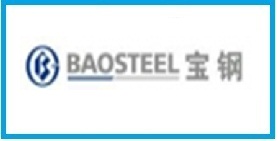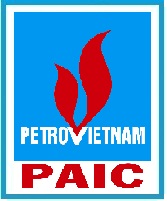 0936 1111 82
0936 1111 82Labor Code of Vietnam 2012 - Chapter IV VOCATIONAL LEARNING AND TRAINING, VOCATIONAL SKILL AND GRADE IMPROVEMENT
Chapter IV VOCATIONAL LEARNING AND TRAINING, VOCATIONAL SKILL AND GRADE IMPROVEMENT
|
|
VIET NAM LABOR CODE 2012(THE LABOR CODE OF VIETNAM)The Labor Code specifies the labor standards; the rights, obligations and responsibilities of the employees, the employers, the labor representative organizations, the employer representative organizations in the labor relation and other relations directly related to the labor relation, the State management of labor |
Chapter IV
VOCATIONAL LEARNING AND TRAINING, VOCATIONAL SKILL AND GRADE IMPROVEMENT
Article 59. Vocational learning and training
1. The employees are entitled to choose their vocation and vocational training at workplaces consistently with their demands for employment.
2. The eligible employers are supported by the State to establish vocational training facilities or hold vocational training classes at workplaces to train, retrain, improve the vocational skill and grade for their employees and provide vocational training to other learners as prescribed by law provisions on vocational training.
Article 60. Responsibilities of employers for vocational training, vocational skill and grade improvement
1. The employers shall make the annual plan and prepare budget to provide vocational training or vocational skill and grade improvement courses for their employees; train the employees before they change their jobs to be recruited by the employers.
2. The employer must send reports on the results of vocational skill and grade training and improvement to provincial State labor management agencies in the annual labor reports.
Article 61. Vocational learning and apprenticeship towards employment
1. When the employer recruits vocational learners and apprentices to work for them, the vocational training registration is not required and school fee collection is prohibited.
The vocational learners and apprentices in this case must be 14 years or over and physically capable of the vocational demand, except for the occupations prescribed by the Ministry of Labor, War Invalids and Social Affairs.
Both parties must sign the vocational training contract. The vocational training contract must be made into 02 copies, each party shall keep one copy.
2. During the vocational training and apprenticeship, if the vocational leaner or the apprentice directly creates or participates in the creation of qualified products, they shall be paid an amount agreed by both parties.
3. When the vocational training or apprenticeship completes, both parties must sign the labor contract when the conditions prescribed in this Code are satisfied.
4. The employer is responsible to encourage the employee to participate in the vocational skill assessment in order to be issued with the national vocational certificate.
Article 62. The vocational training contract between the employer and the employee, vocational training cost
1. Both parties must sign the vocational training contract when the employee is provided with the vocational training, vocational skill and grade improvement courses domestically or overseas using the employer’s budget, including the sponsorship from the employer’s partners.
The vocational training contract must be made into 02 copies, each party shall keep one copy.
2. The vocational training contract must include the following contents:
a) The vocation being trained;
b) The training location and duration;
c) The training cost;
d) The duration that the employee commits to work for the employer after being trained;
dd) The responsibility to return the training cost;
e) The responsibilities of the employer.
3. The training cost includes the expenses on the trainers, the documents, the school, the equipment, the practice materials and, supportive expenses for the learner, the salary, the social insurance medical insurance payment being paid during the training. In case the employee is sent to study overseas, the training cost shall include the travel cost and living cost during the time living overseas.
Các bài liên quan
- Labor Code of Vietnam 2012 - Chapter I GENERAL PROVISIONS
- Labor Code of Vietnam 2012 - Chapter II EMPLOYMENTS
- Labor Code of Vietnam 2012 - Chapter III LABOR CONTRACT
- Labor Code of Vietnam 2012 - Chapter V DIALOGUE AT THE WORKPLACE, COLLECTIVE NEGOTIATION, COLLECTIVE LABOUR AGREEMENT
- Labor Code of Vietnam 2012 - Chapter VI SALARY
- Labor Code of Vietnam 2012 - Chapter VII WORKING HOURS AND BREAK HOURS
- Labor Code of Vietnam 2012 - Chapter VIII LABOR DISCIPLINE AND MATERIAL RESPONSIBLITY
- Labor Code Vietnam 2012 - Chapter IX LABOR SAFETY AND HYGIENE
- Labor code Vietnam 2012 - Chapter X PRIVATE REGULATIONS FOR FEMALE EMPLOYEE
- Labor code Vietnam 2012 - Chapter XI EXCLUSIVE PROVISIONS FOR UNDER AGE EMPLOYEE AND A NUMBER OF TYPES OF EMPLOYEE





















